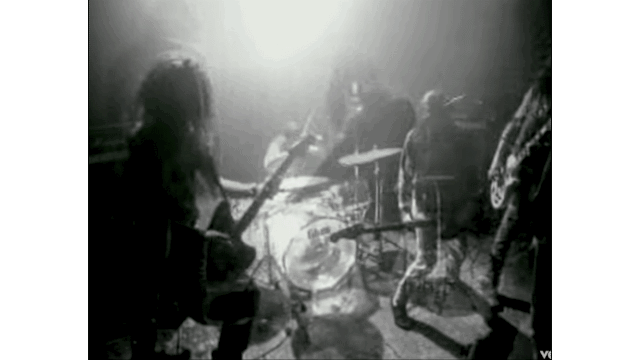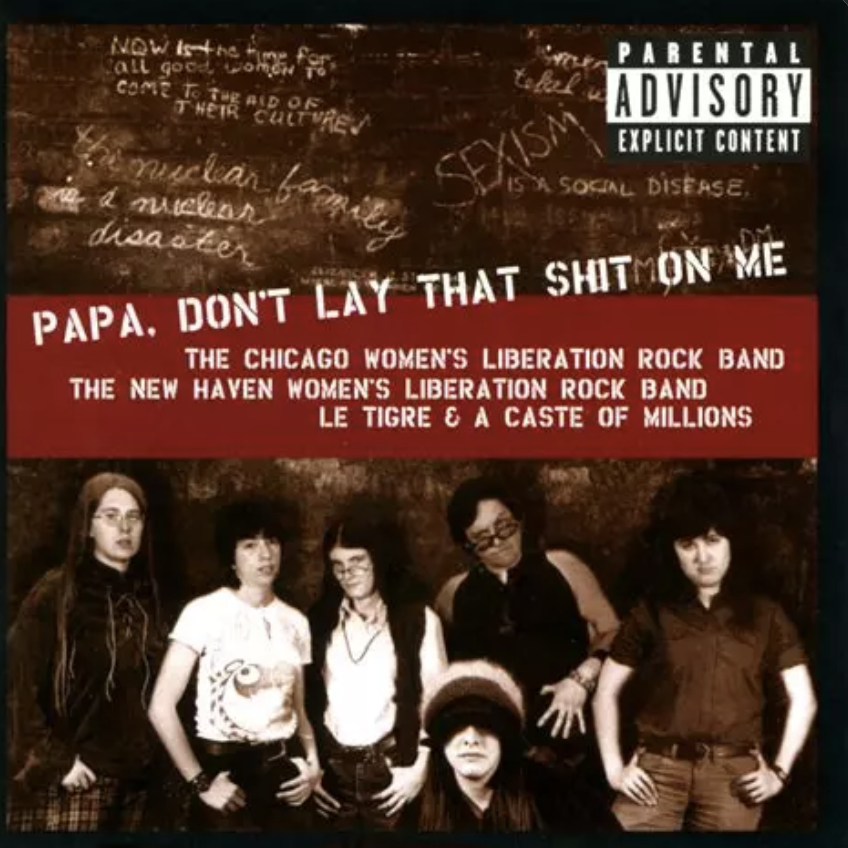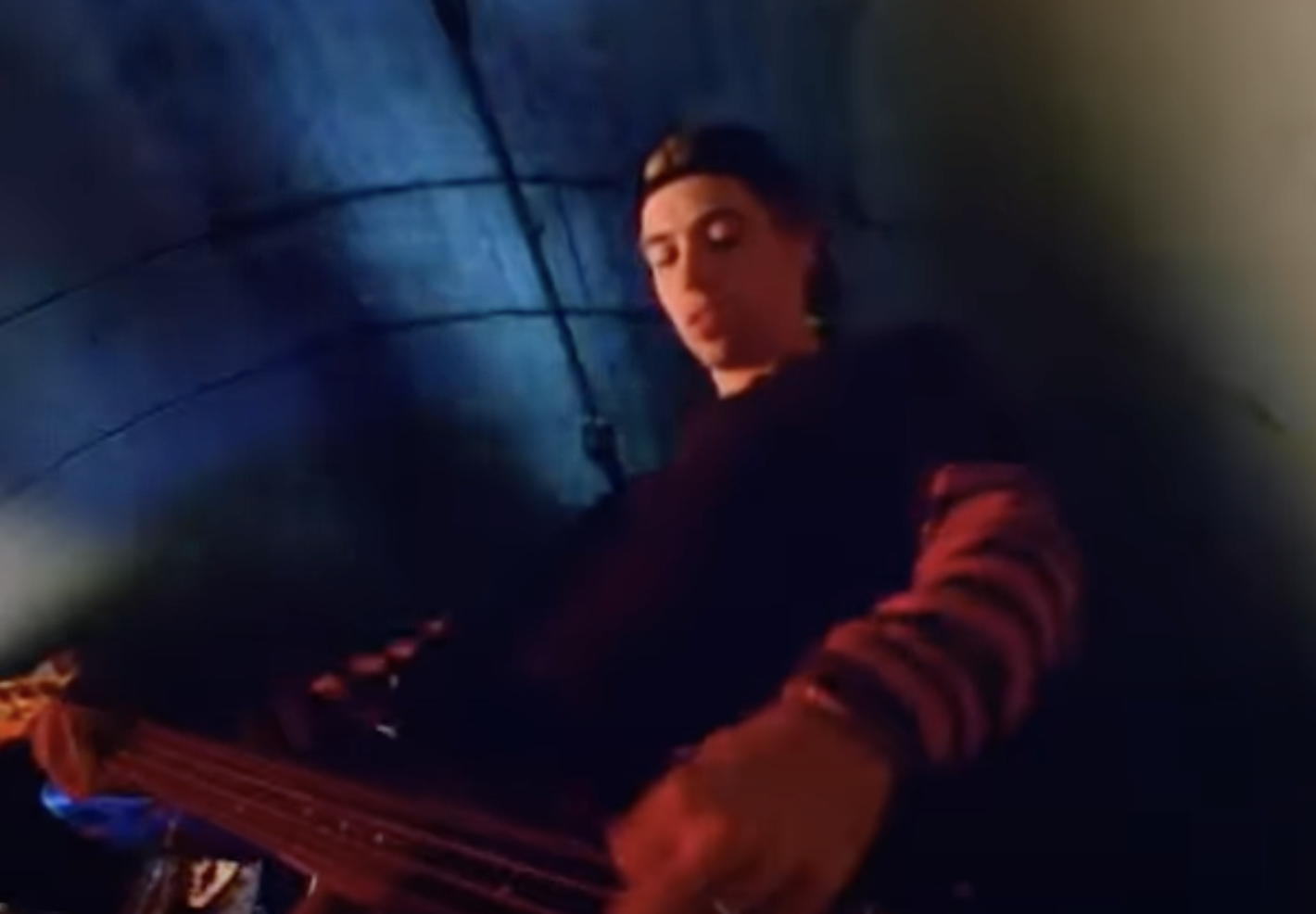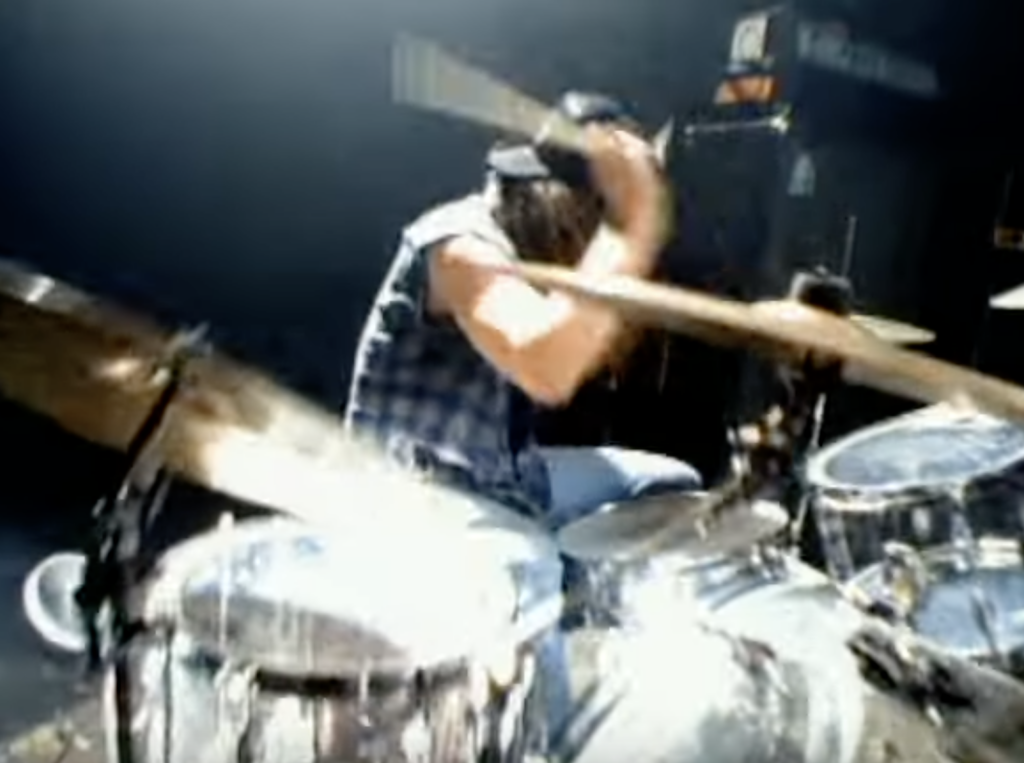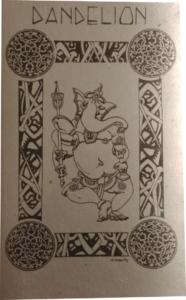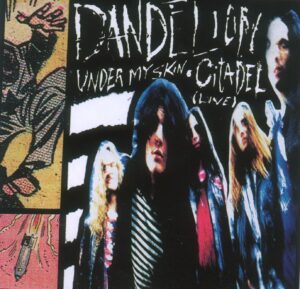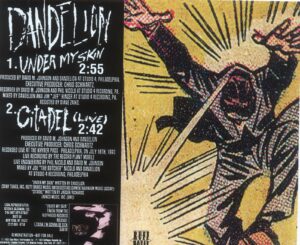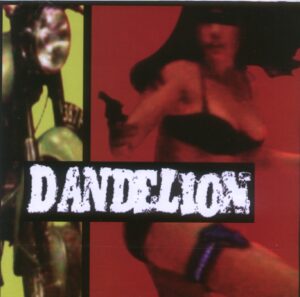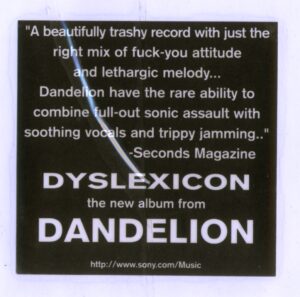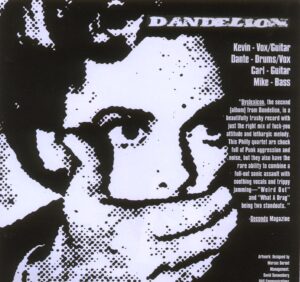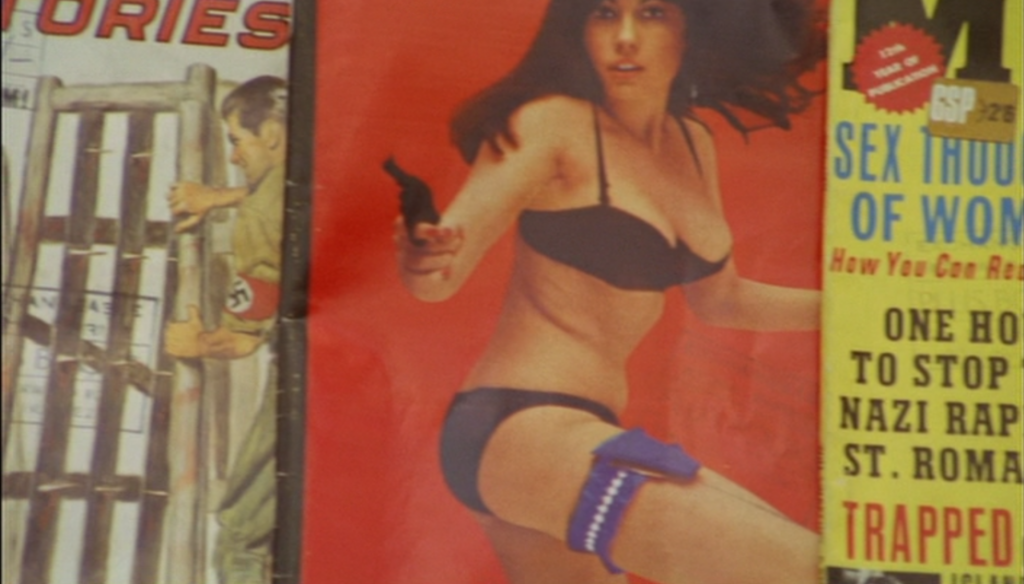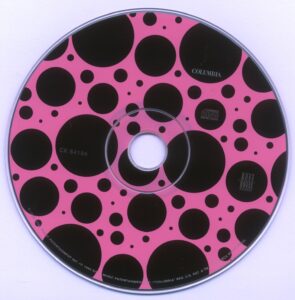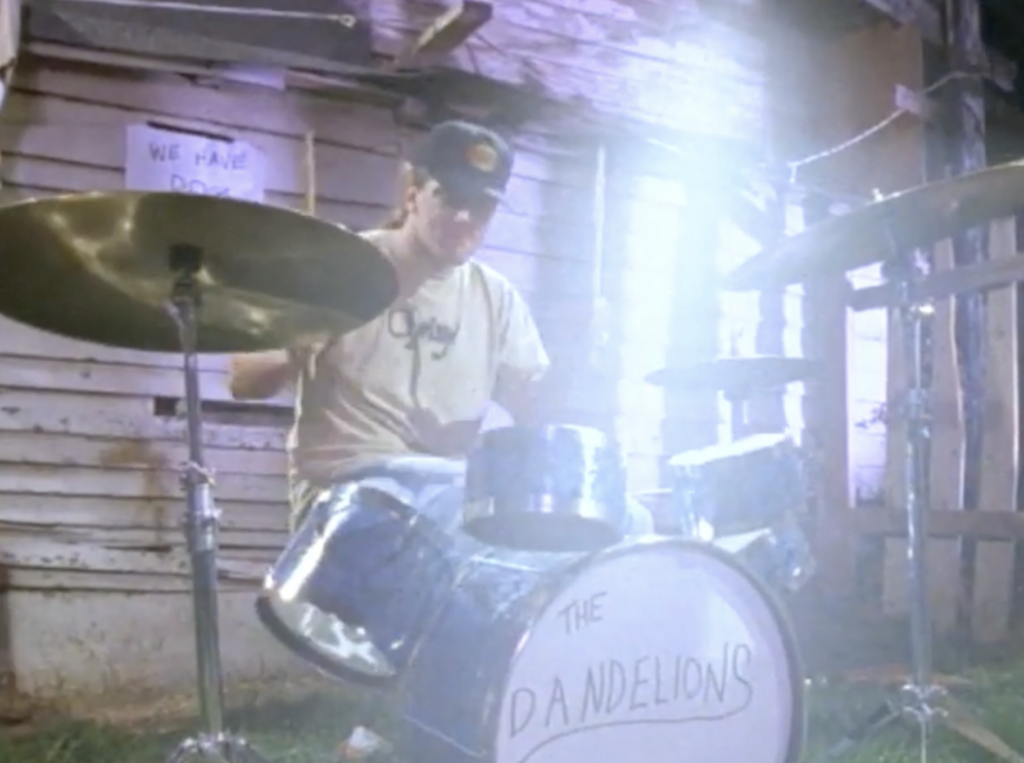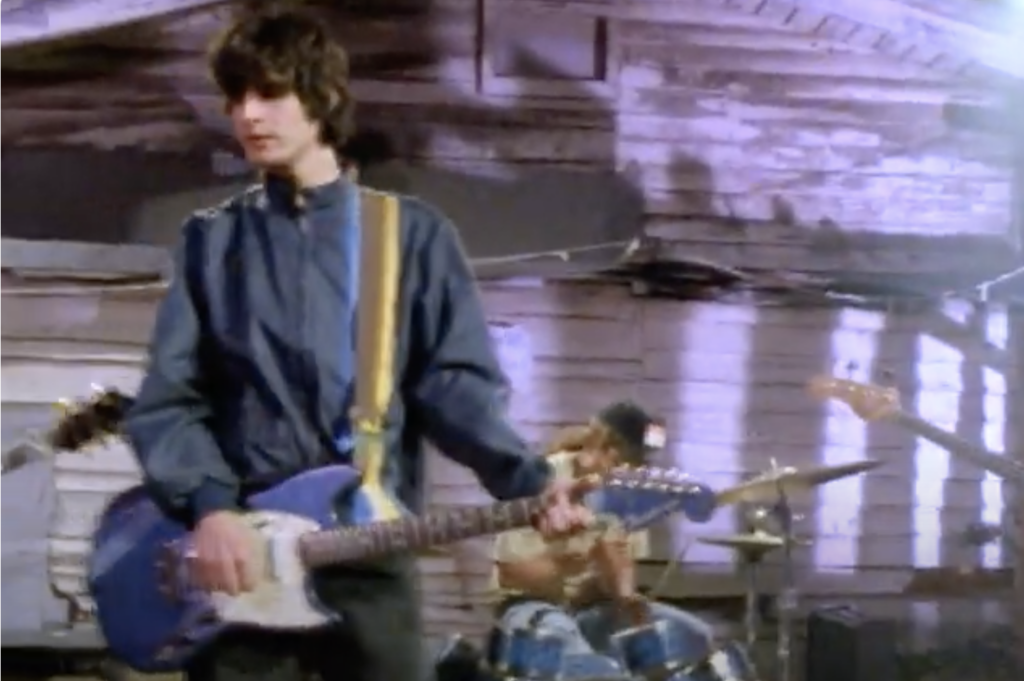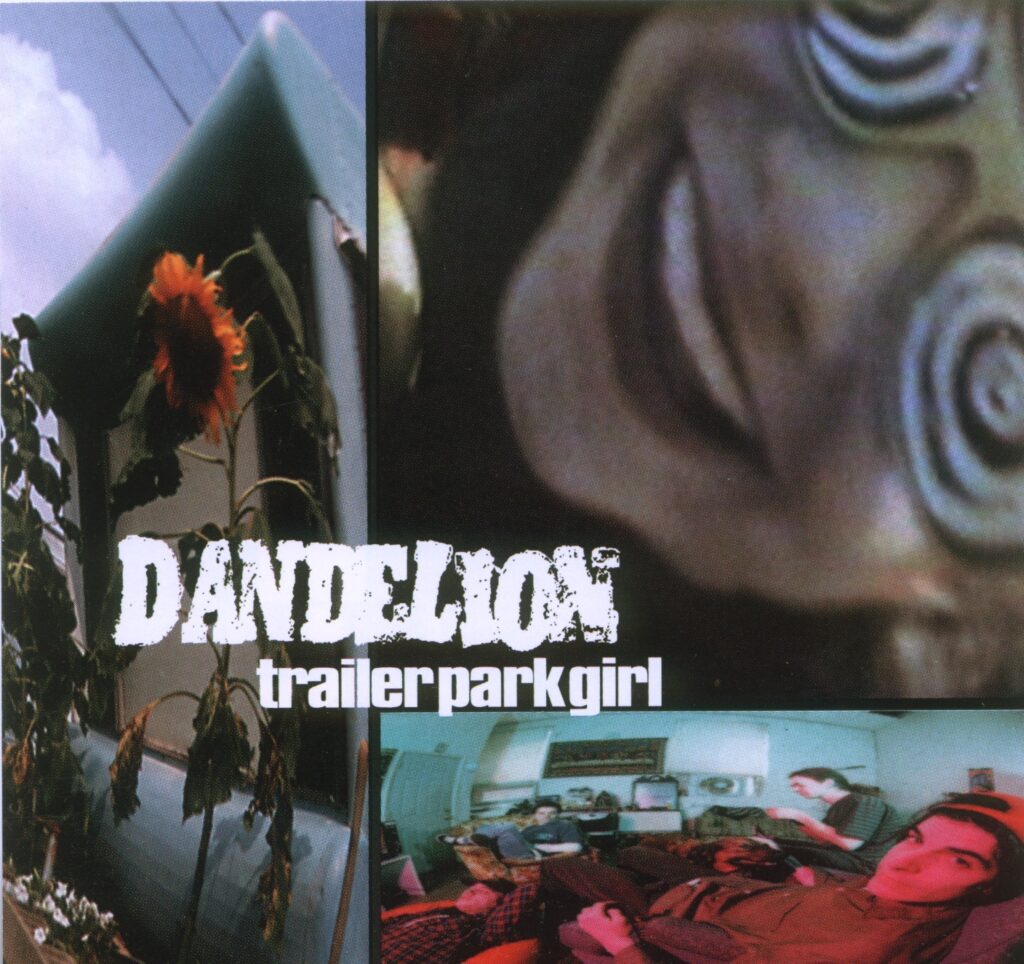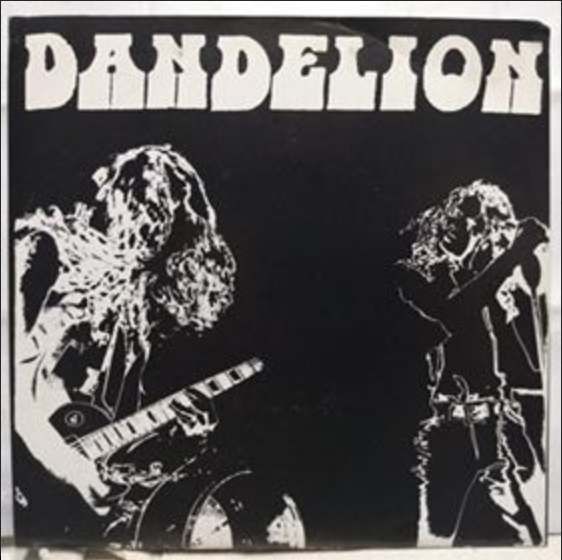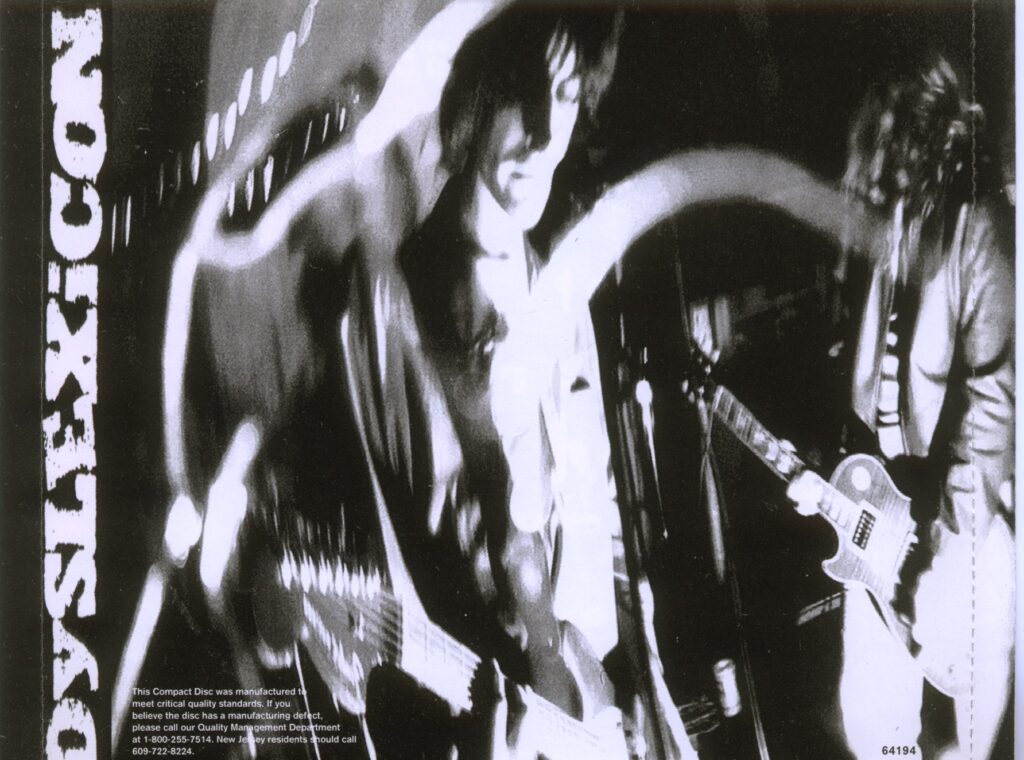Part 1
I Think I’m Gonna Be Sick
and the 2024 Remembrance Show
Whenever I joined Columbia House again, back in the 90s, I would use 8 or 9 of my dozen catalogue selections for bands I knew I wanted; and then use 3 or 4 for bands I’d never heard of that seemed interesting.
One of these unknown bands was Dandelion, whose I Think I’m Gonna Be Sick was released in the 1993 post-Nirvana grunge era, and while I’ve parted ways with many of my Columbia House selections, Dandelion earned a permanent place in the CD-rack: a bridge between 1980s-rockers, and 1990s punk-stoners. The wah-pedal is used enough to please Mike McCready, but without ever sounding like Pearl Jam. And the harmonies (like “I Can Remember” or “Thorn”) are joyful shouts of agreement from joyous sock-hop yesteryears.
Bandleader Kevin Morpurgo passed away in 2023, and in June 2024 the band, with former MC5-member (and currently of The Detroit Cobras) Marcus Durant on vocals, held a Remembrance Show (RS), playing the complete I Think I’m Gonna Be Sick album. And it felt so good to be among hundreds of Dandelion fans. Over the years, I introduced the band to many people – but it’s so welcoming to be around people you don’t know who’ve dug the same thing that you have, for decades.
The first single and album opener, “Waiting for a Ride” has the aggressive riff and passionate vocals of a tortured lover, but the lyrics are funny slacker self-loathing:
“I’m waiting for a ride
So I can be with idiots I don’t even like
I realize I let these people in my life
I wonder why.”
Of the few writings about Dandelion available, many dismiss this song’s meaning as obvious and frivolous – but it seems like another in the classic story of the Hero who is distracted from their Quest by less-than-helpful friends: Buck Mulligan in Ulysses; Falstaff in the Henry plays; Mercutio in Romeo and Juliet. It’s not that these foils/antagonists are without merit – and they might eventually come around – but their intentions and how they interact with the Hero are to distract from the Quest, and it is admirable to continue the Quest in spite of even your closest friends vying to stop you.
And like many of the band’s songs, the post-choruses and breakdowns that totally change tempo bring this thoughtful group onto a higher plane. They drop into and out of different tempos verse to pre-chorus, and chorus to post-chorus. “Under My Skin” also drops down into a bass/drum bridge that suddenly elicits a joy and otherness. The pre-chorus to “Outside” sounds like a grooving jam that might become a Peter Gabriel song (“It’s time for us to get together and find out what the world’s got in store…”) before going back to the yell-vocals of the chorus. The bridge of “Thorn.” The playful outro of “Play That Song.”
Singer and songwriter Kevin Morpurgo’s vocals on this first album are, like the tempo and mood changes, sometimes reminiscent of metal-band vocalists, but also the earnest deadpan of Kris Kirkwood or Liz Phair; and stretch further back to include “Twist and Shout” or even “Yes We Have No Bananas” or even (sacrilege?) “Gonna Raise a Ruckus Tonight.”
2nd song “Under My Skin” drops and you’re enveloped in their slithering groove before you know it and bopping and dancing and rocking. (Like Freddy “Boom Boom” Cannon always said: you can dance to all of our songs!) (This relentless fun will show up on the band’s second album Dyslexicon, with flutes on.) The lyrics are full of comic pathos in the darkness:
“You’re like a pin prick
You get under my skin
I think I’m gonna be sick
So here we go again.”
And the face-the-facts chorus:
“What you’re given ain’t always what you’re owed.”
Dandelion are so funny in their pain – 3rd song “Nothing To Say”:
“I got a head full of thoughts . . .
But I got nothing to say.”
As a matter of course references to Nirvana are inescapable (and I heard early-arriving fans to the Remembrance Show comparing them to Alice In Chains) although all the bands have in common is that they were guitar-riff-heavy in the early 90s. Dandelion’s glam-classic-rock sound on I Think I’m Gonna Be Sick is “Smoking In The Boys’ Room” rebellion, but the smoke is as much bong hits as tobacco, and you can’t see your friends through the haze, in a world getting darker even as we find lights.
In a furious.com interview, drummer Dante Cimino expressed well how absurd band comparisons were from that time:
“Of course we were at times compared to a shitty Nirvana, which I never quite understood. That, to me, was the great thing about the ’90’s in that there was so many different sounding bands all flying under the same flag of ‘alternative’ or ‘grunge’ bands like Jane’s Addiction, AIC (Alice in Chains), Soundgarden, Mudhoney, The Melvins, Nirvana, etc. etc., all sounded different in my opinion, I also thought we didn’t sound like any of those bands as well.”
Indeed, these comparisons sound like the complaints of Grampa Harold who hasn’t heard a new song since 1945.
Sick appeared in that moment in rock & roll where Dinosaur Jr and Camper Van Beethoven were underground but influential, and a band like Mother Love Bone with rock martyr Andrew Wood couldn’t yet become Pearl Jam. Sick does not sound like these bands – but still seems a fine representation of the shift – and part of this shift was away from aggressive posturing and sexual threats disguised as partying. Popular rock strayed back to aggression by the late 90s, although without the Porky’s-fun-times vibe: they did it all for the nookie so shove it.
(The Andrew Wood tribute album by Chris Cornell, Temple of the Dog, is a great example of a transition record in this period. Just four years later, Soundgarden would be tripping rock balls on Superunknown, which never gets old.)
Elsewhere at this time, Riot Grrls were destroying the world of male-dominated spaces in rock, and the taboos around what women could sing about, that would reverberate for decades. Bratmobile called it out starkly: “You want to stab me / and fuck the wounds.” Dudes had a lot of fucking work to do; still do. Kathleen Hanna is a rock and cultural legend forever.
Among many works, the short film by Abby Moser Grrrl Love and Revolution: Riot Grrrl NYC, demonstrates this change in rock; and it was Riot Grrl band Le Tigre who re-issued the Women’s Liberation Band album in 2005 (mentioned below), complete with lyrics and guitar chords, bringing the unbroken circle around.
The late 90s angry-dude rock was maybe the “backlash” against all these successes and all the kind of male-rock-lyrics that The Chicago Women’s Liberation Band responded to back in the 70s with their song “Secretary”:
“Men’s eyes
fantasize
memorizing thighs
and getting off on you.”
and eviscerated with their brilliant song “Papa Don’t Lay That Shit On Me”:
“Rolling Stones
Blood Sweat & Tears
I’ve taken this shit for too many years
Papa don’t lay those sounds on me
I ain’t your groovy chick.”
Perhaps it’s a style that tends to guilt by association: that some singers (even before Guns N’ Roses) sometimes sound like Axl Rose and feel like Brian Warner; and some sound like Rose but feel like Stonewall. (And Axl sounds like Robert Plant. And Plant sounds like Wanda Jackson. It must go further back than we know. {Tori Amos claimed – she sounded serious? – that Robert Plant was the reincarnation of Mary Magdalene.})
Morpurgo did not sound like these singers – but retained some of their soul, particularly on Sick.
It’s not that rock & roll was losing sexuality. Rather, it was attempting to rid itself of non-consent, with Riot Grrls on mic and on stack; and to describe the sexism in families, friendships and even indie rock circles that must be eradicated.
A musician like 2000s indie rocker Ike Reilly illustrates the point: he has sexy songs like “It’s Hard To Make Love To An American” that are all the hotter for not forgetting our political perils; but he still retains the rock idea of the Male Gaze – even as he addresses it with a song like “Angels and Whores.” Rebels who want to rebel against the Puritanical hatred of sexuality can forget that come-ons can seem predatory or tiring in our unequal gender relations.
And this isn’t to dig on Ike Reilly – rock god and songwriting wonder. It is just to demonstrate this pervasive attitude even in one of the best, most revolutionary musicians of the period. All his albums are rewarding – but check out his song “The War On The Terror And The Drugs” for perhaps the earliest example of someone finally taking on and mocking GWBush’s sacred “war on terror” in song. Like McCarthyism, it is difficult to place ourselves in the time period and feel the taboo – but this song was brave as Rage, and Ike Reilly (and his band The Assassination) are fucking great and invaluable.
(But notice that even this great song against the GWOT is filled with a story about finding girls: “There’ll be old ones to lean on / Young ones to cream on / And crazy stunning ones you’d waste all of your dreams on,” before The Girl asks him to describe his dream, in which children fall and crack their heads, and Reilly is unable to be the catcher in the rye, but
“Out of their heads leaked laughter not lies
Mixed in the flower beds with sweet lullabies
Sung by their mother with hope and with love
But I couldn’t find no terror,
and I couldn’t find no drugs.”)
Anyway, Dandelion’s Sick has no hint of such dangers. “In My Room” does threaten it wants to “put my fist through this wall,” but he seems more Andrew Bernard than Andrew Tate.
Perhaps what unites all these bands is electric guitars and rock & roll’s disdain for unjust authority. Sick‘s 4th song, “Outside,” offers an angry and weary disdain for the church:
“What’s behind you?
Stained glass windows
What’s behind you?
Holy wars
What’s behind you?
Tainted religions
Is there a god
beneath it all?”
And the chorus pleads:
“Take it back outside.”
Get the fuck outta here.
When 5th song “Onion Field” begins, you know this album has just opened a lotus flower of psychedelic fun. The lead-guitar-picking moves the album into a soothing trip, like a Lou Reed song (say “Like a Possum”) you can get lost in for hours. The chill vocals are prescient of the more stoner-calm Morpurgo displays on Dyslexicon. It’s the centerpiece of the album – we build up to it with rock-ragers, and then just trip a while on this wave – not losing momentum, but circling, viewing the onion field:
“Do they believe that they are really free?
You tell me how to live my life
but it’s my life
You talk to me like I’m a child
but I’m not as easy as you believe.”
And then the jovial self-effacing confession:
“I always said I wanna go
but I don’t though
I always said I wanna know
but I don’t.”
But he’s still going to “plant a seed / in this hazy orange onion field.” And while the “Onion Field” chorus captures with its melody, the bass of Mike Morpurgo chills one right the fuck out.
But there’s too much pain right now to stay in this trip – and “Onion Field” closes on 2 minutes of
“Are you whispering?!!!!!!!!”
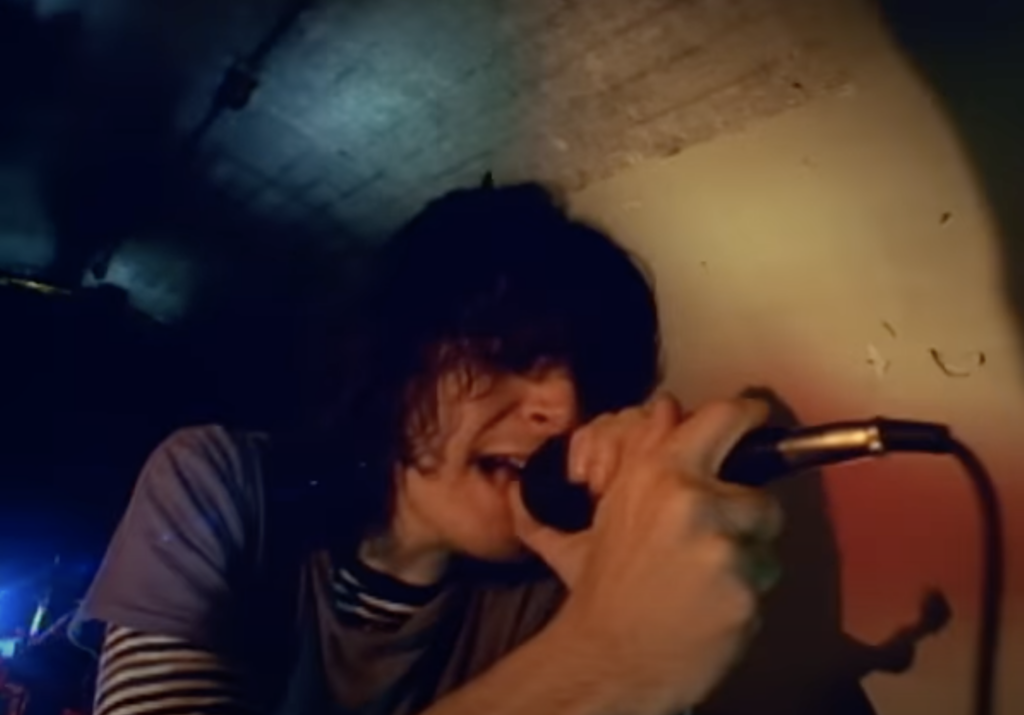
This video appeared on an episode of Beavis & Butthead.
Next to interrupt the lotus groove to go back to home, 6th song “Diggin’ a Hole” rocks in a defiant way I’d of sworn should’ve been on at least late night alternative radio but wasn’t:
“I’m digging me a hole
Got nowhere else to go.”
Fair enough.
During the Remembrance Show, substitute singer Marcus Durant – who designed the album artwork for both albums, Dyslexicon’s being flat out iconic, mid-90s malaise and exuberance – told a story about the day he and Kevin traveled from Philly to New York City to deliver the Sick album-cover artwork to the record company. He recounted that the cover-art was pasted together, and that pieces of the cover blew off in the wind as they walked Bleeker Street, and they found the last missing piece at the feet of Eddie Munster who was standing outside a bodega. And then, after randomly seeing Ric Ocasek and Cyndi Lauper in that New York City way, the boys felt that the empire of rock & roll dreams had been opened to them.
7th song “Thorn” begins chill and bluesy (a hint of the Silver demo’s “Snakebelly”) and is almost a sexy-come-hither song, but it’s just the riff tricking us. The lyrics confess,
“Sometimes I close my eyes
The world just passes by
Sometimes I just don’t care”
“That’s right, that’s right
I’m a thorn on the vine”
And then the acerbic Dandelion joke:
“The pain is yours
But the pleasure’s all mine.”
As the band jammed this song at the RS, it kept occuring to me what a rock & roll band it was – that before we rocked to this in 2024, they rocked to it in 1992 – and before then they rocked to Black Flag, and X-Ray Spex, and Little Richard, and The Animals, and Sister Rosetta Tharpe. For whatever of the band’s sound is captured by words like “grunge” or “90s” – they are a rock band, carrying the flame.
Speaking of Little Richard, “Play That Song” (8th song) howls its demand like any rock & roller, the bass really funking around:
“Play that song
It turns me on
It makes me wanna do things that I should leave alone.”
Along with a cassette-era innuendo:
“Play it all night long
after we stick it deep inside.”
But in the middle-bridge, the demand turns to the pleading needing always waiting underneath the spectacle:
“Right now should last forever
Right now is gone
Play that song.”
9th song “I Can Remember” reminds me of Screaming Trees’ guitar miasma from the Uncle Anasthesia album; before Dandelion segues into the verses that sound like a lost melody from early Pink Floyd.
The mid-song breakdown, with the bass mesmerizing us, spellbinds:
“Can you remember the first time you fell
And nobody answered your cry for help?
Can you remember the feeling inside
When the whole world exploded in the blink of an eye?”
Then the raging of desperate disappointed passion:
“Can you remember the first time you felt like you wanted to die?”
“Can you remember the first time you felt nothing inside?”
“I CAN REMEMBER!”
with hectic guitar antagonizing and comforting, like a Babes In Toyland song.
Penultimate song “In My Room” is a classic stoner-slog: you’re rocking, but it’s a slow grinding riff, the vocals soothe melodically, but also disturb.
“In my roooooooooooooom
All I can do
In my roooooooooooooom
Is wait for you.”
Brian Wilson if he grew up on punk and suffering neoliberalism – and with all the limerance an addict can summon:
“In my room
sweat pours off me but I’m still chilled to the bone
Four walls around me are closing in and crashing down
But you
should be here soon.”
The pre-chorus is so hopeful and defeated:
“And I’m just biding my time
til you walk through that door
And I’m just fighting this urge
to put my fist through a wall
I think I’m losing control
there’s nothing I can do
I think I’m losing myself
without you
in my room”
The lead electric guitar screams hurt, and defiance – much like Kevin’s vocals: I’m in pain, and you’re gonna hear about it, and connect with it and hum it later to feel good.
At the RS, before they break into album closer “Weight of the World,” drummer Dante tells the audience that they’ve never actually played this song live before. I almost fell over.
Listening to this album in my teenage bedroom, 11 tracks deep, “Weight of the World” always seemed 10 minutes long in the best way. Like it picked up where “Onion Field” left off halfway through.
But it’s really only 4 minutes and then fades out for that 1990s special: the hidden track.
But “Weight” is a great album [pretend]ender – the bass bounces, fun and almost silly. And in a masterpiece of fluidity, the verse melody trips along, sing-song, chill:
“Maybe we’ll change things, but just not today.”
“Can’t get rid of something that won’t go away
Can’t hold on to something that ain’t gonna stay.
So where does this leave us at the end of the day?”
The chorus will answer, maybe referencing the friends from 1st song “Waiting for a Ride”:
“And the weight of the world
is dragging us down
and the friends that we’ve made
keep hanging around
I don’t wanna go
I don’t wanna stay
I don’t really know
what I’m trying to say.”
(Without comparing to Nirvana, it’s fun to note the similarity to the lyric from “On A Plane”:
“As a defense I’m neutered and spayed
What the hell am I trying to say?”)
“Weight of the World” behind us but echoing in our brains through 3:30 of mostly silence with occasional hard-to-hear human noises, at 7:37 we finally reach the hidden track known as “Tuesday” which rages and grooves for like 6 minutes, and hints at the quick-riff/melody fun of Dyslexicon‘s “R—-d.”
In the verse, a beautiful moment of laconic dismissal:
“I can’t see you anymore.”
We’re not sure to believe him, or ourselves. Especially when the chorus shouts:
“I know something you don’t know
It’s all the same
It doesn’t change
And it terrifies you
It’s all the same
And if you want change
It’ll all come down on you.”
“Tuesday” is not hidden because it’s no good – the song tears it up, creating Dandelion out of The Who and The Stones and the fun and the boredom and the rage and pain – and that it first appears on 1989’s Silver demo is testament to the band’s merging of classic rock and punk, and blending into something new, at the same time as others were coalescing their own sound in this way.
“So why criticize me?
Or try to define me?
We’re not the same.”
As well as performing the album at the RS, the band also played a cover of the Rolling Stones’ “Citadel,” a live version of which was featured as the B-side on the “Under My Skin” CD-single. It makes sense that Satanic Majesties-era Stones is one of their favorite sounds. That comforting chorus “Candy and Kathy / hope you both are well” interrupted by that guitar-only-moment of a riff of rock & roll bliss – we can easily see why the band is named after the Satanic-era Stones song “Dandelion” with its silly melodic charm and dark disappointment:
“Little girls and boys, come out to play, yes
Bring your dandelions to blow away
Dandelion don’t tell no lies
Dandelion will make you wise
Tell me if she laughs or cries
Blow away dandelion, blow away dandelion”
(Singer Marcus Durant told a few stories between songs, at one point apologizing for taking so much time. A winded and funny drummer Dante assured him, “I love this story” – as much for the rest-time as for the story, it was clear. And even though Dante complained later in the set, “Why couldn’t we have been a folk band?” it never seemed like he missed a thing – a wonderful performance that Dante had introduced with the comic relief of, “Fuck you, Kevin, for making me play this show.”) (Like Temple of the Dog’s song, “Say Hello 2 Heaven”:
“I never wanted
To write these words down for you
With the pages of phrases
Of all the things we’ll never do”)
Having treasured this album for more than 30 years, I admit the difficulty in hearing it with ears that have never heard it before. “There’s no friends like the old friends” as the Joyce character says. Does it sound like many early 90s bands? I can’t say – not the ones that I listened to over and over. That I Think I’m Gonna Be Sick it is an achievement of a band hitting their stride and bringing the listener with them is not in doubt – and the rest is onion fields and bad friends and playing songs all night long.
Part 2
Dyslexicon
As much as I loved Sick, to my ears it was overshadowed by Dandelion’s second and final album Dyslexicon. Because holy shit.
When the album was released in August 1995, I didn’t have a driver’s license, and gave my brother $15 of my lawn-mowing money to stop by Media Play on his way home from his summer job to pick up the new Dandelion CD. I did not expect to love it as I did. I didn’t know that I’d go back to this record constantly for 3 decades and counting – to its irreverent fun, its melancholy isolation, its comforting confusion controlled by a tight band on fire with each other.
The album opens with an electric guitar chord – and then a fuck ton of fun in “Pass the Stone” – a gleeful punk song channeled through bored fury:
“Hey, good morning
waiting for me
waiting for me
you know where I’m gonna be
Yeah, good morning
don’t get me wrong
don’t even listen to me
I’m just stoned.”
Morpurgo’s vocals on the chorus are exquisitely laconic, as if “What do I care?” but sound so good you can tell He cares alot – like 2nd track and the band’s “hit” – “Weird-Out” – which captures the earnest slacker:
“I filled the last bowl of the night
it’s not much, I know
but it’s a start.”
“Pass the Stone” grooves hard, and like all their songs manages to sustain itself in a mold while keeping you guessing: constant riff changes, tempo changes, without ever losing the listener. In a 1995 Billboard article, Kevin is quoted as saying:
“…we’re pretty much a garage band. …On the first record, we probably had more metal edges; those are still there, but I think we’ve learned to incorporate things like bridges that we didn’t really acknowledge before.”
And the lyrics are still self-deprecatingly funny:
“I’ll be the asshole for a while
It’s hard I know, but I don’t mind
You can be the asshole later on
It’s cool, I know that you’ll be fine”
The second single (although I never heard it played anywhere) and 3rd track “Trailer Park Girl” confirms the album’s fun slacker point of view in capitalist 1995, opining for maybe a Riot Grrl who doesn’t give a shit about money, a “beautiful trailer park chick from Mars”:
“She’s so bad
it’d be a scream
Can’t you see what I mean?”
“We don’t even live in a trailer park, no
Lying around with nowhere to go
We don’t need to live in a trailer park, no
All’s I want is that girl
and somewhere to go”
(Like Sal and Jack in On the Road:
“Sal, we gotta go and never stop going till we get there.”
“Where we going, man?”
“I don’t know but we gotta go.”)
In the right speaker, guitarist Carl Hinds shreds. It is the stoner slacker attitude that is not about being lazy, but about withdrawing one’s labor from hurtful jobs and systems, and making community and fun to inspire and heal a world.
It reminds me of what Timothy White wrote about The Beach Boys:
“…it was a Southern Californian belief – that there was a purity of purpose in the honest expression of pleasurable needs – which made them exhilarating, moving, and universal.”
A The Quietus article quotes a friend describing the community spirit that “Philly Kev” Morpurgo built in Philly, and brought to London:
“Rich Millman of Zen Guerilla and Carlton Melton remembers visiting London with the latter outfit to play a gig with Dethscalator in 2011.
‘We stayed with Kev and [his wife] Aldene at their flat for two days. I remember Kev taking me for a walk in the afternoon in their neighbourhood, which was the Jamaican part of town, and Kev was high-fiving everyone. All the locals. All the Rastas. It was like Kev was Keith Richards! He and Aldene were the best hosts for a touring band that had travelled all night from Berlin. He was completely ‘Philly Kev’ in London. He was awesome. … He loved all kinds of people and music, and will always be remembered as a generous, giving friend.”
With compliments, Sick and Dyslexicon can be considered Slacker albums, with that intimate but detached attitude that sings about being lazy while working real hard writing that song. In a 1995 interview with The Hartford Courant, Kevin uses the words “loser-core” and “acid-trash” to describe the band; “something like that.”
Writer Tom Lutz in Doing Nothing wrote about the slackers, idlers and loafers throughout post-Reformation society, describing playwright Samuel Johnson as the original slacker, who understood
“the degradations of the market and at the same time his obviously deep need to produce for that market, his practical acceptance and principled rejection of the claims of commerce, and his profound engagement with and aloof detachment from his own ambitions.”
“To conspicuously do nothing,” Lutz observes, “is to assert and insist upon a countercultural identity.” And that the “slacker hero” – in spite of cultural stereotypes – “can make one want, more than anything, to do something, maybe even to get to work.”
Like the classic example that the Velvet Underground sold 10,000 albums, and every one of those 10,000 buyers formed their own band.
The slacker, like the character in Kerouac’s The Town and The City, knows the importance of their work – and their non-work, with that feeling of “always lying low, always foolish somehow.” Because the slacker is a reaction to the overwork, and useless work, of capitalism, they are always fending off the accusations of laziness while also delighting in them. It is only when being lazy that the real work gets done.
“Disregard but don’t ignore,” Morpurgo sings, as though quoting from an Office Space memo, noodling on his guitar and writing lyrics that capture the trapped joy inside the boredom and pain:
“No one’s around to answer the phone
Stay on the line and wait for the tone
If you feel like, maybe you won’t
Maybe next time”
And while every authoritarian wants to end the story with their boot on someone’s face forever, the slacker wants the future to be a camera hurled off the mountaintop – what comes next? Who tells the next part of the story? I hope I can help.
“Wasting your time
all for nothing”
Morpurgo sings in “Pass the Stone” – the Slacker in bloom, “Wasting time” “all for nothing” because they’re not accumulating capital for warmongers; they’re not building a “career”; and they are accomplishing so much by existing in defiance.
In the furious.com interview, drummer Dante claims:
“What did we accomplish while we were a band? Not much, if you ask me. Did we make some money and get to tour the world. YES. Did we have an impact on music in general? NO.”
No? Fuck Off, Dante! (But we love you.) This record, like the best records, means the world to its lovers. For 45 minutes, over and over, until I can be like you, and go make something to celebrate us, or mourn us, and inspire others and be one of the kids in the rye, or the ashtrays for a while.
Dandelion has this attitude Philly-style, and the sound of bong hits precedes “What a Drag” – a song you can sing to yourself on any shit occasion, including capitalism:
“What a drag, what a drag
I’ll tell you right now
Ain’t too much fun.”
And why is it a drag? Our hard-working slackers know:
“I’ll tell you right now
I’d rather do something
I’d rather do nothing at all.”
than waste my life on this capitalist drag. For all proles, the Dandelion lyric always rings true:
“I’m a long way out from under my stone.”
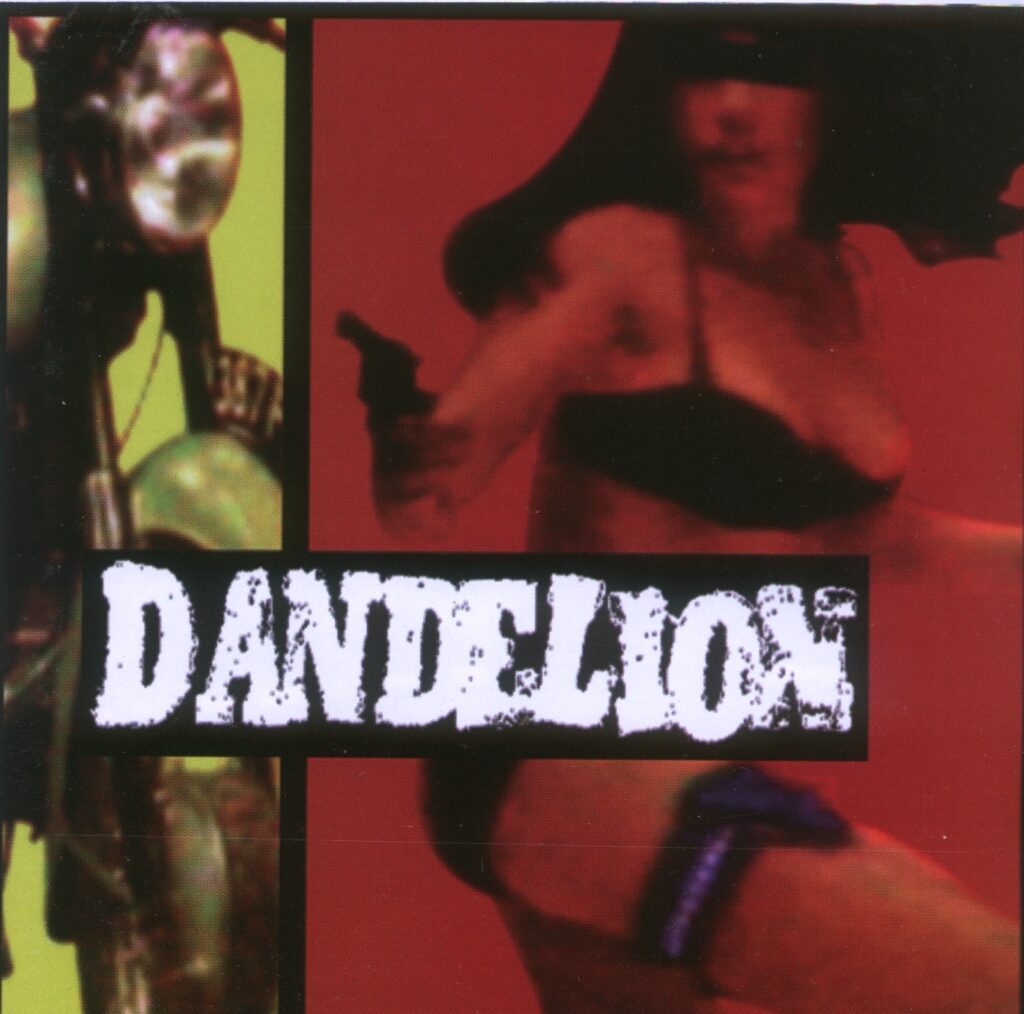
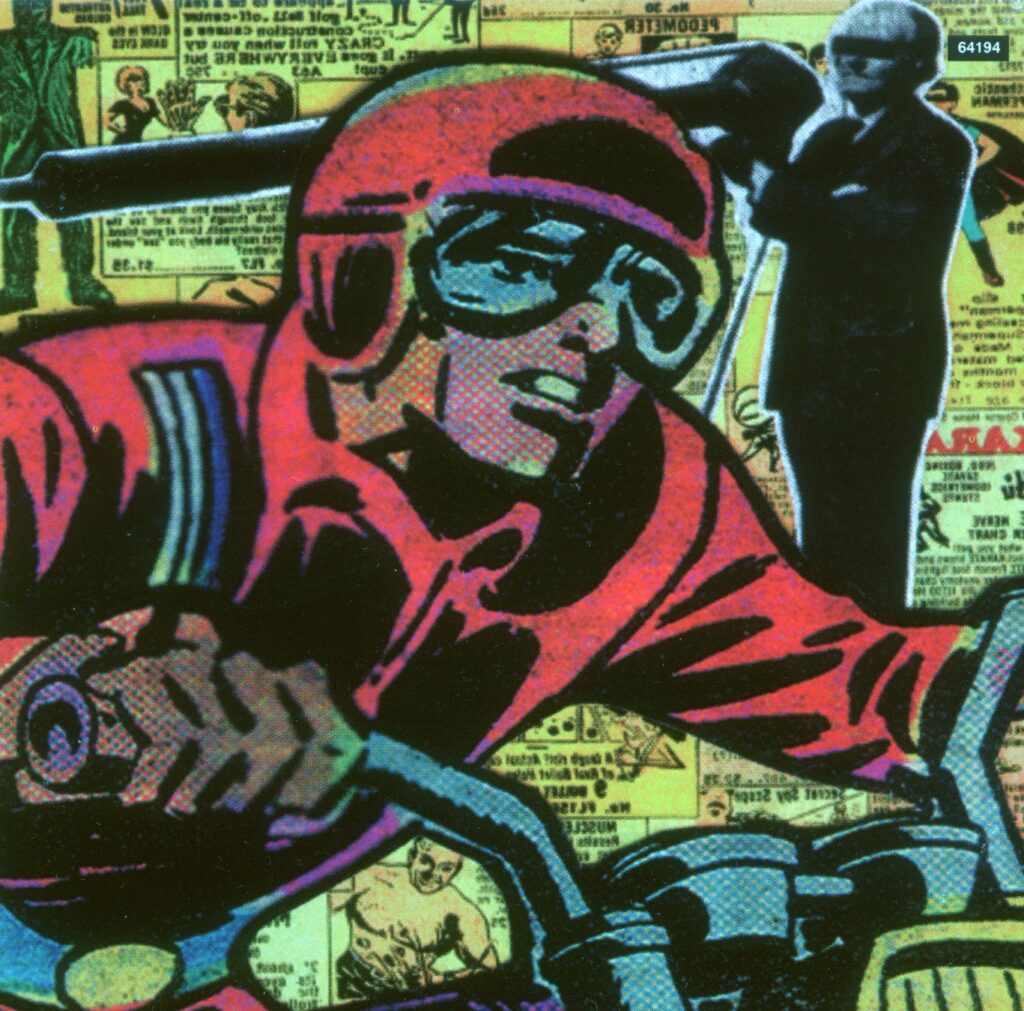
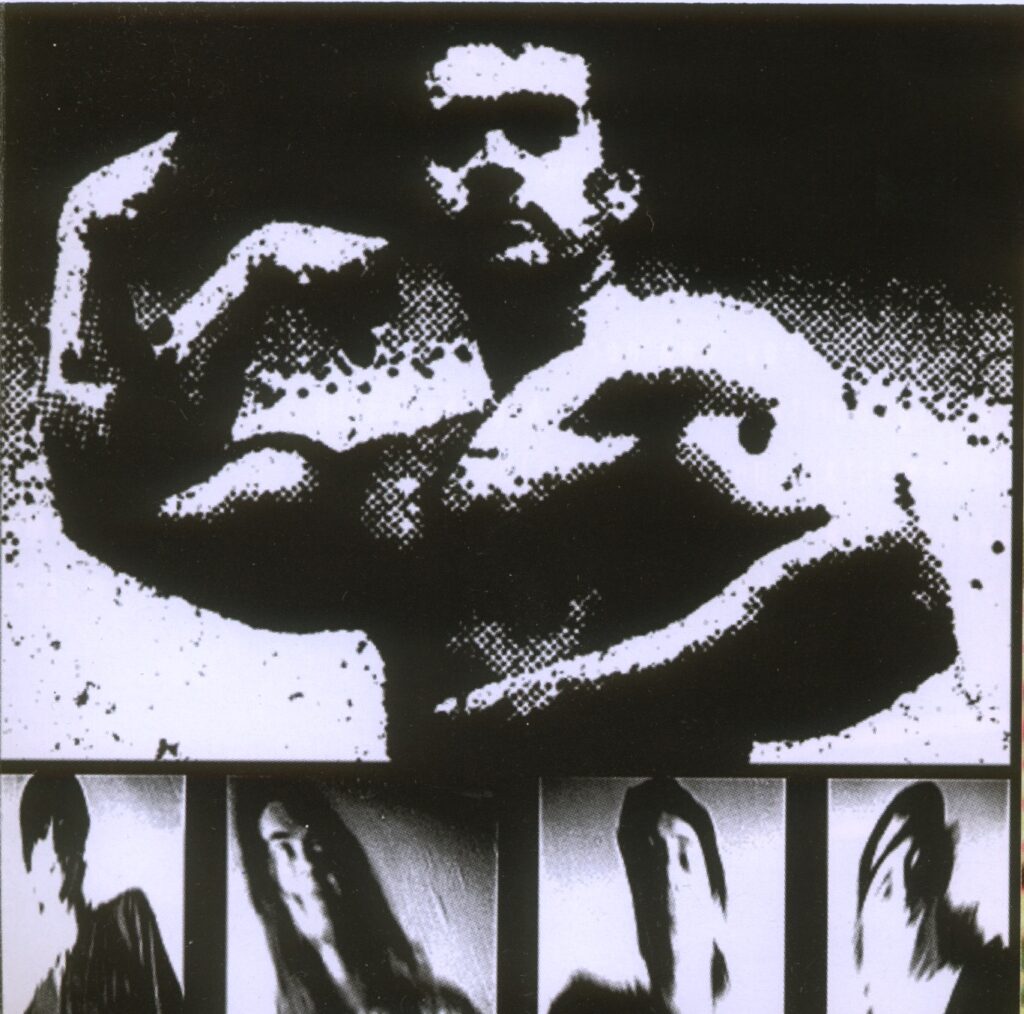
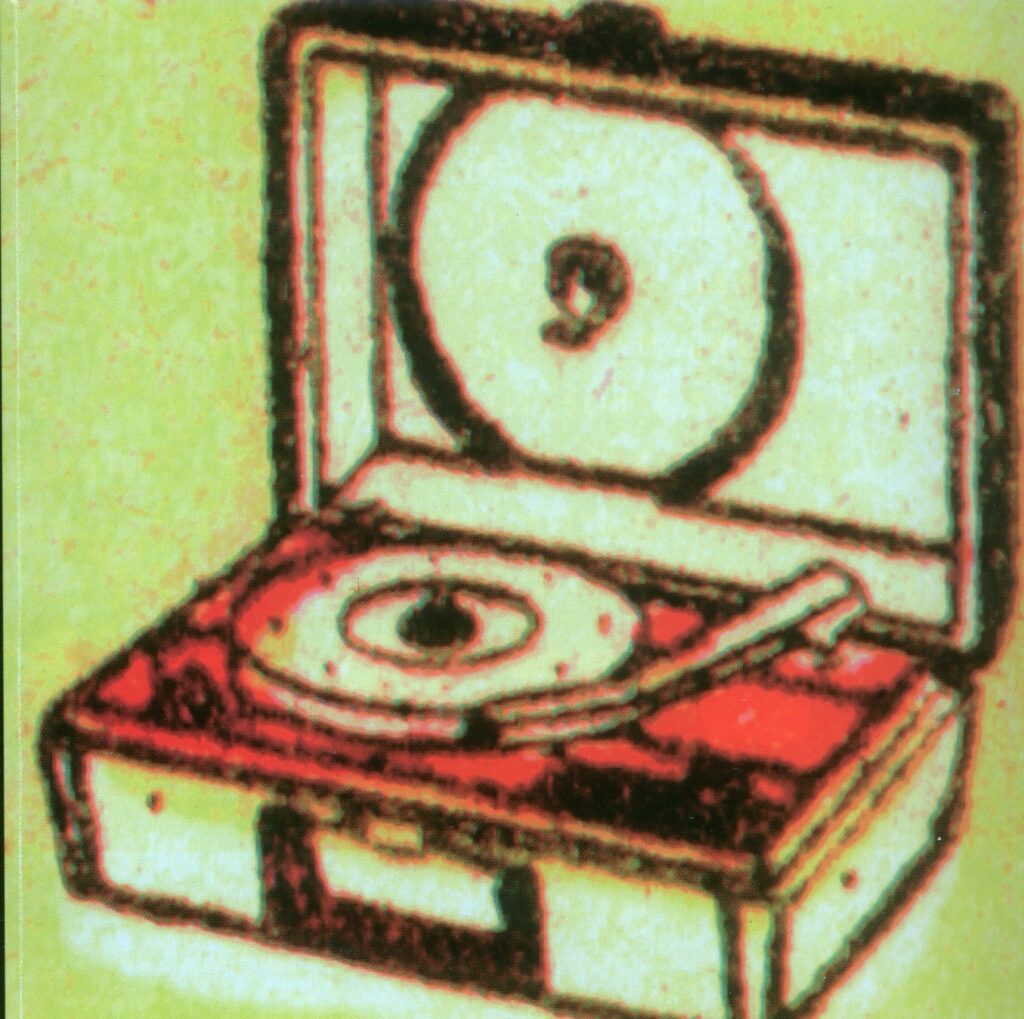
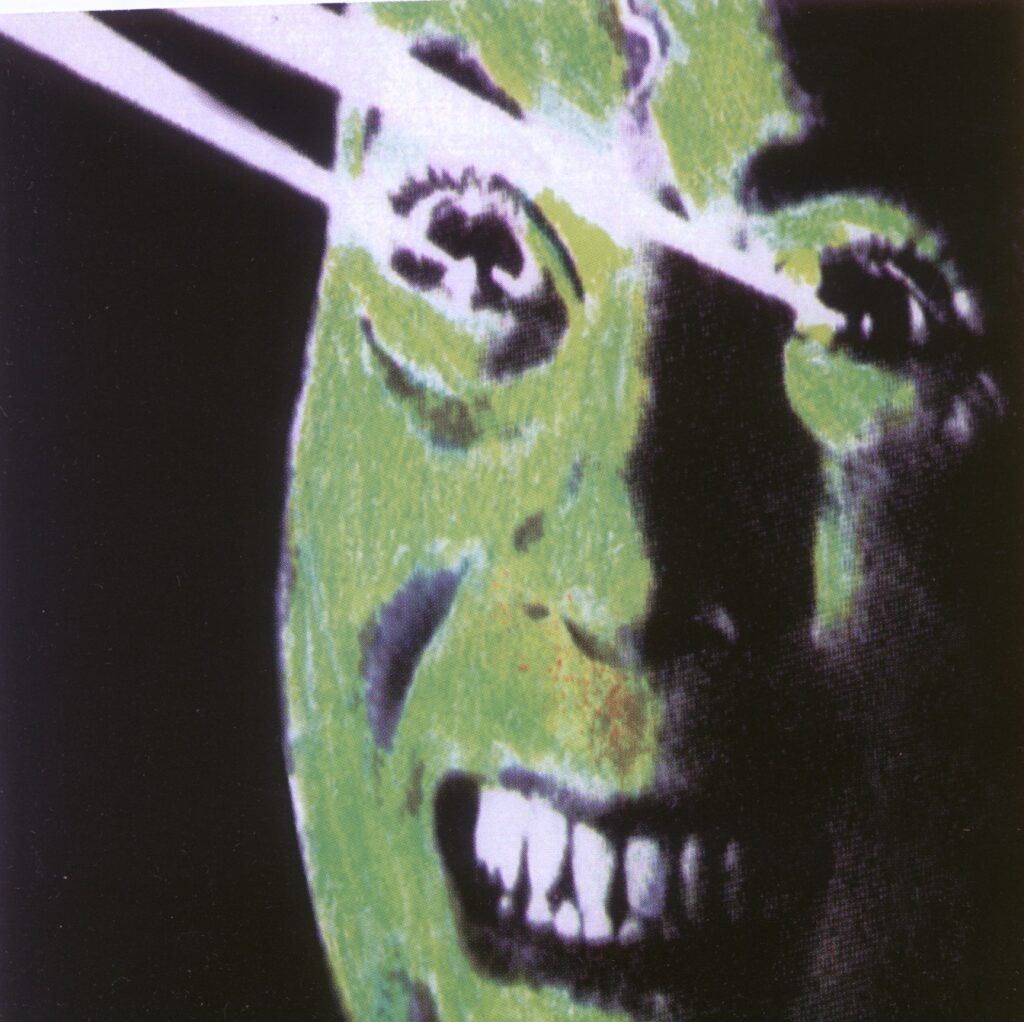
Dandelion’s riffs are a combination of the unpredictable-Drive Like Jehu, with the melodic-hook of The Kinks. As a shitty guitar player, I can’t believe how much they change chords. There’s an Up On The Sun quality to Dyslexicon – never stopping chord changing. “Drag” basically has a chorus, a bridge, and a chorus – but it’s still a mesmerizing maze you can lose yourself in, wondering if it’s classic or punk or post-rock – and not giving a damn.
And here comes “Super Cool”: great harmonies, drums that keep together a rockin riff, a plaintive verse:
“Be sure to remember!
We already told you!”
and somehow you’re in the chorus:
“I know
Wouldn’t bother me if you didn’t care
Should not bother me just anywhere
I know
It ain’t super cool
But it’s okay
I know, I know, I know.”
You can’t tell if he’s giving this opinion out, or receiving it – either way, “It ain’t super cool, but it’s okay.”
The outro of driving guitar riffs, the drums pounding, the lead guitar setting itself on fire, where’s that laugh coming from?, and you’re deep in this record now. No going back – it has spread the fire to you. The sample of a robotic man laughing that ends “Super Cool” is a touch that transcends – that ties together the sound of this record, the neo-noirish artwork and the pink-polka-dot CD, and the idea that we can still find fun even as the corporate revolution takes away our spaces and our communities and our radio stations – we can find something else, somewhere else, find each other, like a crowd at a Remembrance Show.
Concerning Carl’s lead guitar, I wouldn’t blaspheme and compare it to David Gilmour or Slash – but his playing possesses some of the same qualities that are invaluable in their playing: precision, passion, inventiveness, and feeling – the last is the hardest to come by, as even guitarists whose skills would melt your face might not ever touch your soul.
Three drum hits and we’re in song 6, the unfortunately named “R——d,” used in that 1990s way where people didn’t think it would hurt anyone but did.
The song starts on fire, and careens until 1 minute seems like 10 and you’re suddenly in the bridge tripping balls, the lead guitar raging in the right speaker. (And that breakdown in the intro – this drummer is so fucking funny.)
“False Alarm” (song 7) immediately captures us with a fast-sung verse, you can’t keep up with the lyrics, the riff and melody are a crunchy circle from a subconscious funhouse dream:
“She said
‘Do it all yourself
like everyone else
do yourself a favor
and get over it’
(Oh no!).”
But the hammering repeated chorus
“She said everything’s gonna be all right”
comforts in the storm.
As “Tapped” opens, it builds and builds until one of those Dandelion verse riffs where you can’t tell how many chords there are and you’re captured in the mess. This song more than any other on Dyslexicon reaches back to the sound of Sick.
The chorus’ howl
“All used up!
Now we know why”
captures the weariness of this 1995 album, exhausted by the hope that never came to help; we’re on our own and all we’ve got is this band before it breaks up, this album before the CD-player breaks, this song until it ends, this club before it closes – that feeling from the 90s that they had in the 20s, as Sinclair Lewis wrote in Main Street:
“That this Ford car might stand in front of the Bon Ton, Hannibal invaded Rome…”
In a parody of evanjelly magazine Entertainment Monitor, which taught Xians what to keep from their children’s ears, Harper’s Magazine published a brief description of Dyslexicon in 1996:
“Themes: Shocking one another sexually. Falling for a girl who lives in a trailer park. Boredom. Receiving reassurance that a relationship will be okay. Feeling like you have nothing left to offer the world as an individual. An ode to Evel Knievel, a famous motorcycle stuntman.”
It reminded me of having to hide Nevermind and 19NaughtyIII under my bed in a sneaker with a phony Michael Jordan autograph on it; or telling the preacher-parental-units, “No, this album doesn’t have the lyrics printed inside” hoping they wouldn’t open up the cover and read the lyrics I knew they’d be displeased with.
“Outside” from Sick is the band’s religion-defiance apostate song, and kids who grew up evanjelly (I have no idea if the Dandelion crew did, or not) know that you’ve got to censor the world from your parents, or they’ll censor the world for you (but not the parts that hurt you). You need to pretend that you’re not in pain – or they might think the pain is caused by them – which it is – but that would hurt their feelings – and they don’t want to think the pain is caused by them – so they’ll need to blame something else – like rock & roll or friends or Satan – and then they’ll take that thing away – that thing that makes you want to live – so better to pretend that you’re not in pain, and that there’s no printed lyrics. (And with Dandelion, there aren’t any.)
9th song “Whatever” is the “Basket Case” “Lump” “Loser” “Song 2” 90-second single that could’ve landed Dandelion on everyone’s lips:
“Yeah yeah, no
no news here
Yeah yeah, whatever you say
make yourself quite clear, uh huh”
“Yeah yeah
whatever
it doesn’t matter
Yeah yeah
whatever you say
doesn’t matter to me anyway.”
This song on repeat defeats all your enemies. (It also has one of the greatest mistake-intros of all time.)
This is what the mid-90s sounded like, what could’ve been, what was in our hearts, if Kurt didn’t die and Bratmobile won (they did! they will) but in that way where Kavanaugh could never happen (our fault, not their fault), and Korn/Limp Bizkit didn’t rise. We were still fun! GWBush hadn’t happened yet.
It is deeply ironic to many that Bizkit complained so infamously and bitterly about MTV/radio/music culture being taken over by music they didn’t like – as so many of us wept that our “alternative rock” stations, only 2 or 3 years of age, had been taken over by the masculine-aggressive-anger crowd of Bizkit and weren’t worth listening to anymore – back to Classic Rock hits or silence.
This was still before She’s All That-type dance scenes that seemed to reveal a shift to pre-planned but spontaneous acts of choreographed conformity in the name of fun and togetherness, very much unlike defiant cultural touchstones Carrie Smells Like Pump Up The Graduate – which (She’s All That), along with angry-tunes, seemed to confirm that anything with dissent in it was to be relegated to where it was before 1991, as the Corporate Neoliberal Revolution rolled on. (The “High School Reunion” episode of It’s Always Sunny makes reference to this shift as The Gang introduces their dance routine, Charlie saying, “Kids are dancing again!”)
After that brilliant flash of spirit, “Snow Job” rolls in, Dante never stops hammering everything around him, the verse shoulders pain like “Disregard but don’t ignore” but feels playful, the chorus hits like “A Day In The Life”:
“I can’t relate to everyone
I see all the kids all having fun
and all the people, they all run
don’t know which place I belong.”
Before the second bridge’s self-deprecating:
“I listen to myself
‘Cause there’s nobody else
I readily disagree
with me.”
And the third bridge’s anti-capitalist slacker vibe in an unforgettable melody that has swirled around my brain every day since August 1995:
“Snowflake’s got a headache
she just wants to crash
me, I’m like a head case
everyone knows that
we ain’t got no money
we don’t care about that
me, I think it’s funny
money’s such a drag.”
The third bridge / pre-outro builds and swirls to an unbelievable thrilling fury unknown before to this band – and somehow effortlessly leads into the last chorus:
“I’d rather take my time and sit
don’t think I’ll waste my time
I quit
until I change my mind on it
won’t be like you”
Song 11 “Viva Kneval” opens another chapter of Dandelion, a never-ending chord-churning celebration of
“death-defying odds
stacked up like rows of cars”
with riffs to match. You get out of breath trying to keep up – but never stop chewing their melodic gum.
And a flute appears in the breakdown, reappearing from the “Trailer Park Girl” outro, mimic’d and mocked by the lead guitar. The rhythm builds. Where are we going? Don’t tell me.
And then the outro – singing “Viva Kneval” over and over. This melody is a wonderful worm in my brain, it comes to me every day, to remind me of this song, this album, this fun interesting passionate wonderful record.
And to close, the octave-chord-hammering of “Melon From Heaven,” like “Cherub Rock” but warmer with perhaps the band’s first use of an acoustic guitar, and that quickly becomes a comforting verse:
“I want what you know
open my eyes”
And if this is the last chorus of Dandelion – of the world – it’s ok. The vocals know it – they’ll face it – with you – singing until the end:
“if I could leave my fears behind
just long enough to see again
well I feel I realize
everything is more of the same”
It fades out. But the CD doesn’t stop spinning. Is there more, like the first album?
Ha ha, got ya – like the comeback of “Helter Skelter” – it lasts another few seconds – and see ya!
Again, perhaps having loved this album for 3 decades has blunted my ability to discern. That is okay. I try to keep it alive for reasons other than it’s ability to impress enough people to be remembered on a Best 500 Albums Ever list. A band, an acting troupe, an athlete, can transcend or crystallize their own moment in a way that will be invisible to most who come later and who can only look back and not remember.
As rock & roll struggled to survive the self-inflicted death of Kurt, an earnest slacker album like Dyslexicon said The Party’s Not Over. We don’t have to abandon the hope. We don’t have to lose Lollapalooza; we don’t have to lose the beloved “alternative” radio stations that bloomed in our early-mid-90s that featured so many artists outside of pop; rock & roll doesn’t have to succumb to corporate-taste and exclusively anger.
But even a large wave cannot change the tides – even while the waves’ impressions last almost-forever on the rock. Anyway, it is a damn shame this band didn’t make more than two albums. But Jeff Buckley only made one. And The Late Greats made none.
Part 3:
Miscellaneous
At the RS, in his introduction and dedication, Kevin’s brother Mike Morpurgo told us about Dandelion’s final release, an LP-only reissue of the 5-songs from the band’s pre-Sick demo known as the Silver demo, along with previously unknown song “Motion” and a previously unreleased early version of “In My Room” that doesn’t have the album-version’s chorus. (And whoever digitizes this vinyl and puts it online already got a big “Fuck You” and Middle Finger from Mike, so don’t be the one.)
But while I’m writing about every available Dandelion song*, I had to include this Part 3. Because the Silver demo and the new vinyl show us our familiar Dandelion of “Waiting For A Ride” – but also “Snakebelly,” a song so good it’s hard to believe it wasn’t on Sick. The harmonica is to die for, and shows a glimpse of an entirely different blues-album the band could’ve gone on to make. Without a doubt their best song that was not released on the 2 albums.
It’s no wonder that the Silver demo helped bring about a record deal with Ruffhouse Records (under Columbia Records). It features not only versions of their first single “Ride,” and “Outside,” but a blistering version of Sick’s hidden track “Tuesday,” (with it’s ringing-chord-bridge that is almost “Baba O’Riley” for a second, but then jumps back into full throttle) as well as two songs that didn’t make it onto the album releases: “The Trip” and “Snakebelly.”
“The Trip” is a sludgy crawl, almost Slint-like or STP before STP, to the hooky chorus that eventually is a transcendent lofty singalong, anthemic with an apocalyptic-rock climax and finale. The hook brings you back.
The same heavy crawl carries the verse riff of “Motion,” although the chorus portends the chord-changing fun to be found on Dyslexicon. This one must’ve rocked live in 1989 – and it really is something that Dandelion sounded like this before Seattle 1990s happened. But there were Bloody Valentines in the water, Pixies in the air, Green Day in the fires, and in the soil Yo La Tengo forming, enveloping.
And while we’re here, the “Trailer Park Girl” single features a wonderful alternative mix: “Trailer Park Girl (Trailer Hitch Remix)” which is more than worth the time tracking it down on Discogs. Stripping away most of the percussion on the verses gives it a feeling of ease, cruising through the trailer park – and the drums/bass on the chorus become indomitable.
* Dandelion songs that I could not find, and have never heard, are the 2 covers from their first release, a 7″ vinyl single of “Waiting For A Ride” with B-sides “Sunshine of Your Love” (Cream) and “Who Do You Love” (Bo Diddley).
Part 4
END
Each artifact of joy and resistance, in these days, is to be cherished, shared, lived. Dandelion’s two albums constitute such joy, such insistence on humanity.
The influential book Poor People’s Movements by Frances Fox Piven and Richard A. Cloward, writes about these seemingly invisible resistances and their power:
“Strikes and riots are clearly forms of collective action, but even some forms of defiance which appear to be individual acts, such as crime or school truancy or incendiarism, while more ambiguous, may have a collective dimension, for those who engage in these acts may consider themselves to be part of a larger movement. Such apparently atomized acts of defiance can be considered movement events when those involved perceive themselves to be acting as members of a group, and when they share a common set of protest beliefs.
“Prevailing definitions, by stressing articulated social change goals as the defining feature of social movements, have had the effect of denying political meaning to many forms of protest.”
The Stones being harassed by police power; Sinead O’Connor’s life and career purposefully attacked; the Dixie Chicks having their band assailed; Billy Holiday targeted by the FBI – legendary acts of resistance. It helps that we can name them, their meaning clear to us when we communicate with each other – but it can also be misleading, as though there weren’t infinite resistances by those we can’t name.
Dandelion’s music is firmly in rock & roll’s heritage of resistance, in sound, in meaning, in attitude. There are many such bands – I hope we each have dozens, or hundreds.
Bands that offered something other than what you could get at the Grammy’s Gap McDonalds NBC School Church, could mean everything; could be a light of guiding comfort, when you’re surrounded by lights hidden under and darkened by bushels.
Death-defying odds
open my eyes
waiting for a ride
in this hazy orange onion field
going nowhere I know
play that song
I can remember
all used up
ain’t always what you’re owed
just kiddin around
I don’t even know
won’t be like you
it’s just not cool
ear full of lies
I’m afraid I know just how you feel
I was afraid you won’t know what I mean
money’s such a drag
everything is more of the same
yeah yeah whatever you say.
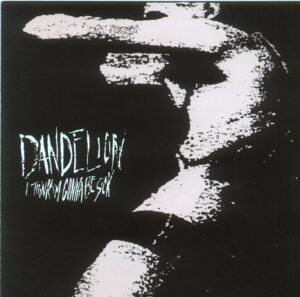
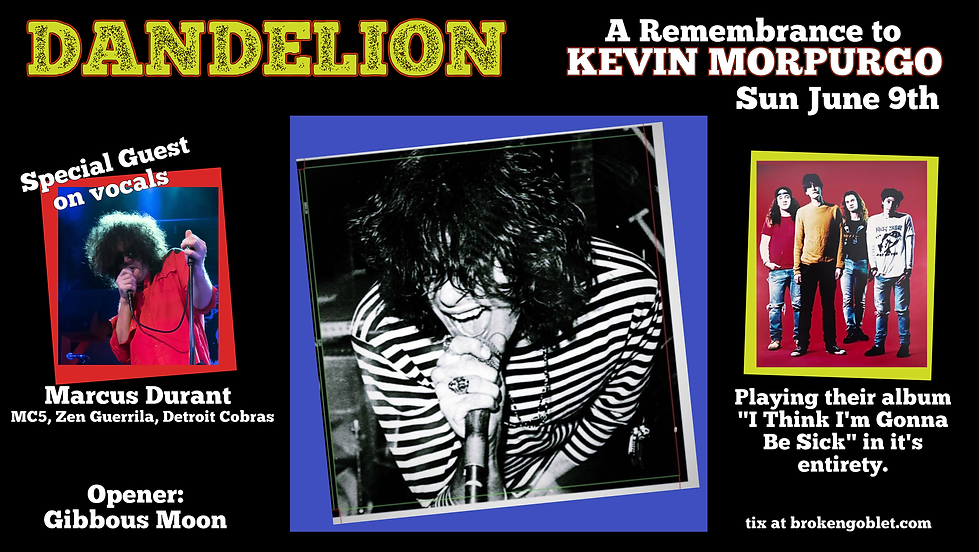
![green wrist band, text: "[21+] Broken Goblet [21+]](https://www.handoutzine.com/wp-content/uploads/2024/08/Dandelion_13-scaled-e1722890036910-1024x195.jpeg)
